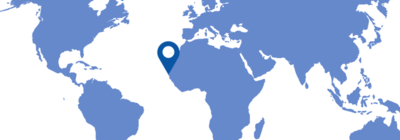The United Nations Office for West Africa and the Sahel (UNOWAS) is a Dakar-based special political mission managed by the Department of Political and Peacebuilding Affairs (DPPA), which engages in preventive diplomacy, good offices and political mediation and facilitation in countries in West Africa and the Sahel. The Office also assists sub-regional institutions and States in strengthening their capacities in these areas, as well as in addressing cross-border and cross-cutting threats to peace and security. It promotes good governance, respect for the rule of law, human rights and the mainstreaming of gender in conflict prevention and conflict management initiatives, as well as the women, peace and security and youth, peace and security agenda.
UNOWAS works closely with other UN entities and several regional and international partners - such as Economic Community of West African States, Mano River Union, Lake Chad Basin Commission, Gulf of Guinea Commission, Accra Initiative, and African Union - to promote an integrated approach to conflict prevention and regional issues, including terrorism and violent extremism, transnational organized crime, drug-trafficking, other illicit forms of trafficking, piracy and maritime insecurity, as well as to addressing the impact of climate change on peace and stability.
To help address insecurity and promote sustainable development in the Sahel region, the Special Representative of the Secretary-General (SRSG) for West Africa and the Sahel leads regional advocacy efforts for the implementation of the United Nations Integrated Strategy for the Sahel, which was endorsed by the Security Council in June 2013. The strategy includes a range of innovative actions in the areas of governance, security and resilience in support of 10 countries of the Sahel.
The SRSG also serves as Chairperson of the Cameroon-Nigeria Mixed Commission (CNMC), which was established to facilitate the implementation of the 2002 ruling of the International Court of Justice (ICJ) on the Cameroon-Nigeria boundary dispute. The mandate of the Mixed Commission includes supporting the demarcation of the land boundary and delineation of the maritime boundary; facilitating the withdrawal of the Federal Republic of Nigeria and the transfer of authority to the Republic of Cameroon; addressing the situation of affected populations; and making recommendations on confidence-building measures.

